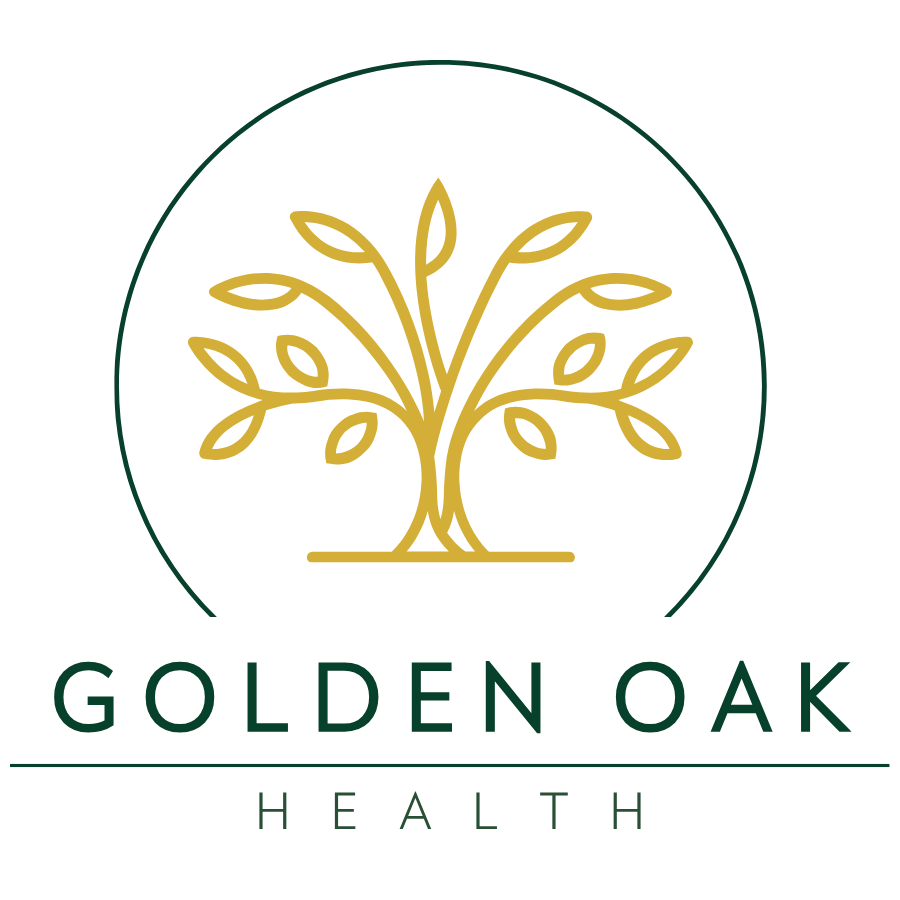We’re here for you
Golden Oak Health provides compassionate, evidence-based psychiatric care tailored to each individual. We specialize in comprehensive mental health evaluations, medication management, and collaborative treatment planning for a wide range of conditions, including, but not limited to, anxiety, depression, ADHD, bipolar disorder, and PTSD. We also provide preoperative psychiatric evaluations for bariatric surgery, and are committed to working alongside your other healthcare providers to ensure continuity of care.
Whether you’re seeking care for the first time or looking to re-establish support, we offer a safe and personalized approach to help you feel understood and empowered.
For more information, please contact our office to speak with one of our experienced staff members and schedule your appointment. Katie Braun, Jen Wittman, and their dedicated team take the time to understand your unique needs and concerns, allowing them to tailor your visit for a personalized experience. The appropriate questionnaires and forms will be provided in advance to ensure your priorities are addressed and any relevant conditions will be evaluated from your very first visit.
We treat and diagnose a variety of psychiatric disorders in the clinic and via telehealth.
Attention Deficit Hyperactivity Disorder (ADHD)
ADHD, or Attention-Deficit/Hyperactivity Disorder, is a developmental condition marked by a persistent pattern of one or more of the following symptoms:
Inattention: Difficulty sustaining focus, staying organized, or following through on tasks.
Hyperactivity: Frequently moving about (even in inappropriate settings), feeling restless, or talking excessively.
Impulsivity: Interrupting conversations, intruding on others, or struggling to wait for one's turn.
Post Traumatic Stress Disorder (PTSD)
It is natural to feel afraid during and after a traumatic situation. Fear is a part of the body’s “fight-or-flight” response, which helps us avoid or respond to potential danger. People may experience a range of reactions after trauma, and most will recover from their symptoms over time. Those who continue to experience symptoms may be diagnosed with post-traumatic stress disorder (PTSD).
Major Depressive Disorder (MDD)
Everyone experiences feelings of sadness or low moods from time to time, but these emotions typically fade with time. However, depression, also known as major depressive disorder or clinical depression, is a different matter. It can lead to intense symptoms that significantly impact your emotions, thoughts, and ability to manage everyday tasks such as sleeping, eating, or working.
Bipolar Disorder
Bipolar disorder, previously known as manic-depressive illness or manic depression, is a mental health condition characterized by noticeable fluctuations in mood, energy, activity levels, and focus. Individuals with bipolar disorder typically undergo phases of heightened mood, which may be described as extremely “up,” elated, irritable, or energized (referred to as manic episodes), as well as periods of feeling very “down,” sad, indifferent, or hopeless (known as depressive episodes).
Generalized Anxiety Disorder (GAD)
Experiencing occasional anxiety is a typical aspect of life. Many individuals are concerned about various issues, including health, finances, school, work, or family. However, those with generalized anxiety disorder (GAD) experience heightened feelings of worry or nervousness more frequently and intensely, even when their concerns are disproportionate to the situation.








